Attending college in a large city like Chicago may be overwhelming, but three students from small towns, all who have dreams of one day performing on the big stage, knew they needed to leave the comfort of home, face the challenge and reap the connections and experience an urban school could bring.

Nick McDowell, Elya Bottiger and Taylor Immel all hail from small towns and are now student performers at Columbia College Chicago. While the transition was not easy, they knew attending school in a city where they could make connections with performers from The Second City, Goodman Theater, Steppenwolf Theatre Company and others would pay off.
McDowell, originally from Belvidere, Illinois, which is about 90 minutes from Chicago, in Boone County, said he looked at many schools in rural areas and smaller cities, but he realized that if he wanted to make it as a performer, Columbia College was the best choice.
“If this is the kind of work you want to do, you have to learn and live in that kind of environment,” McDowell said.
A senior majoring in comedy writing and performance as well as fiction writing, and who one day hopes to perform for The Second City, McDowell said his professors have been instrumental in helping him network within Chicago’s comedy scene.
“My teachers are people who are directors at The Second City and are putting up main-stage shows,” McDowell said.
McDowell initially planned on studying acting as well as fiction writing but realized he had a greater interest in comedy and improv.
“When I got to Columbia and got more involved in the improv community here in the city and on campus, I just saw myself gravitating toward improv performance and sketch,” McDowell said.
McDowell has been an active member in the Columbia College Improv Club, and in 2013, when Columbia announced it was offering comedy writing and performance as a major, McDowell was able to turn his hobby into a focus, though he almost missed his chance.
“I was considering doing a BFA in fiction writing and a minor in acting, so I had the application in hand, ready to turn it in, and then they made the announcement that they were making this major,” McDowell said.
“It hit me that this was fate and I could not pass up this opportunity; it’s the only school in the country to have a program like this.”
Having professors who are experienced in improv comedy has paid dividends.
“These are the people we get to learn comedy writing and performance from. That’s just invaluable. If you want to learn how to do this, learn from the people who are doing this right now,” McDowell said.
While learning the craft has given McDowell a new level of insight and appreciation for the skill and technique used by comedians, pulling back the curtain on the mystery of how it’s done has had the unintended consequence of taking away what he called “the wow factor.”

“It’s almost like finding out Santa isn’t real,” he said. “Christmas is still special, but it doesn’t have that awe or disbelief.”
Taylor Imel, a freshman at Columbia College who hails from Huntington, Indiana, originally looked into the acting program at Ball State University but passed because it wasn’t located in a big city.
“I would be crafted there, but then I would be set out into what? At least when you’re here [in Chicago] you have an idea of what’s going on around you so when you’re set out you can make it.”
As a fresh face to the world of theater, Imel said her first year at Columbia has been a learning process about theater and acting, and most importantly learning about the dedication it takes to succeed.
“They’ll give you the tools,” Imel said of Columbia, “but if you’re not invested in it, you’re not going to make it.”
Many of her classmates are a mix of musical theater and acting majors and a blend of freshmen, sophomores and juniors. This mix of students from all backgrounds provides Imel with many opportunities to collaborate on a variety of projects.
“Looking back, I feel like I haven’t been involved in that many shows, but I feel like I’ve learned so much over the first year,” Imel said. “I’ve done a staged reading for my playwright friend and been involved in a couple short films.”
Though she is just starting out, Imel has already learned the importance of networking and taking the long view.
“I have found that it’s important to use fellow Columbia students as connections,” she said.
“Especially starting out, almost all my work has come from other students seeing my work ethic and positive persona and taking a chance on me.”
“I think it’s most important to use your own age group because those are the people who will be in the field with you in the future. They will remember how you work, and you can help each other grow in your craft.”
Elya Bottiger, a musical performance major, said having Chicago as her college campus has opened up her opportunities and helped her get over her fears.
“Going to school here doesn’t mean we just have two musicals, we have the entire city of Chicago to go audition and explore in,”Bottiger said.
Bottiger took a circuitous path to Columbia, attended 11 different schools before graduating high school, all of which, she said, were in small or rural towns. Making the jump to a big city was new for her, but realized how much opportunity Chicago had to offer.
“The exposure to shows and the tightly knit theater community here has made it easier to get chances to expand my artistic vocabulary,” Bottiger said.
“You’re not just surrounded by people who are all in their early 20s going through the same problems with different variations. As an actor you’re exposed to different cultures consistently every single day. That makes it easier to be an artist because you’re more aware of the world.”
Having so much culture at her fingertips has helped Bottiger stay in touch with current trends in the industry.
“Seeing the shows in Chicago is just as important as actively seeking auditions and opportunity,” Bottiger said, adding that she typically, tries to see two shows a week to gain insight and knowledge into what’s trending in the theater market.
Bottiger said had she attended a liberal arts school in a rural area, she would have gotten more experience in shows affiliated with the school, but less knowledge about the realities of the business.
As for the school component, Bottiger said her professors at Columbia have helped her reach a higher level of professionalism.
“What I love about Columbia is that they say ‘this is your art form, learn how to become you as a better artist’ and that’s really important,” Bottiger said. [pullquote]“The fame is of no concern, but the artistry is what I really want to perfect.”[/pullquote]
But to display the artistry, you have land the role, which means auditioning. Bottiger said in a city like Chicago, where anybody could be a somebody, you’re always auditioning.
“When you’re walking down the street you have to make sure you’re being nice because you never know who you’re walking next to,” she said. “You never know if they’re going to be behind the table at the next audition that you show up to.”
Bottiger said living in a big city has helped her overcome any anxiety she had about auditioning because there are so many auditions to attend, 26 during last semester alone, and she has reached a point where it is more routine than frightening. She has learned to view the process as two minutes of showing off.
Her showing off is starting to pay off and Bottiger booked a role at the Chicago Shakespeare Theater this summer as an understudy in “The Little Mermaid.”

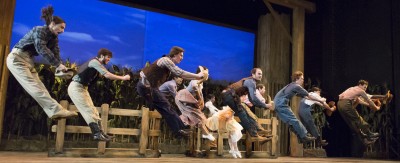


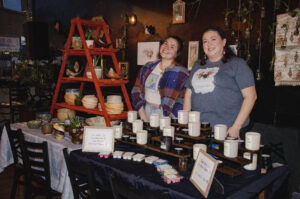
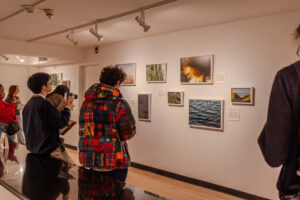
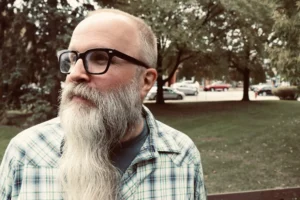










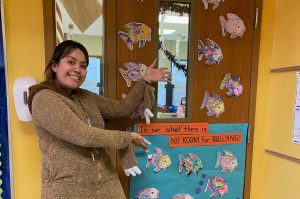
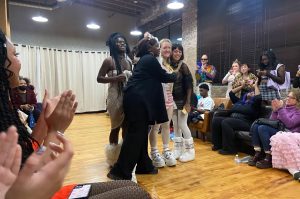

Be First to Comment